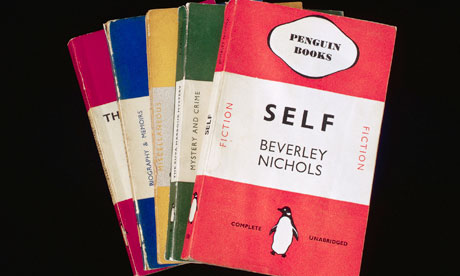
The world's largest private colony of Penguins (the literary rather than the Antarctic fish-eating kind) is about to leave its home in the Thames Valley. Mr and Mrs Hans Schmoller, who own more than 11,000 of the famous paperbacks, are presenting them to the London School of Economics.
The gift includes ancient Puffins, long-forgotten Penguin Specials and the firm's first-ever publication, Ariel, a life of Shelley by André Maurois. Mr Schmoller began collecting the books when he joined Penguin as a typographer in 1949 and his enthusiasm, matched only by his wife Tanya's, has grown steadily ever since.
"In front of me as I speak to you," he said yesterday, "is a whole wall made up of Pelican books."
The books are mostly in the mint condition they were in when they came to Mr Schmoller as perks during his 27 years with Penguin. Tanya was also with the firm, as personal assistant to its founder, Sir Allen Lane, and she picked up any new publications which her husband missed.
"A lot of them didn't really interest us anyway," said Mr Schmoller, "and I'm afraid we weeded some out in the early days when we wondered where we were going to put them all."
Hence the 300-odd gaps in the collection which the Schmollers or the LSE must fill to make a complete set from Maurois (published on July 30, 1935) to the present day. Among them are six Anthony Powell novels, the Puffin picture book Make Your Own Zoo and, shamefully, the Penguin Guardian crossword books numbers one, five, six and seven.
"We're not really crossword people," said Mr Schmoller,"so we gave them away to hospitals and jumble sales. We're now busy trying to find them and all the other books we got rid of, to make the set complete."
This is a dedicated task and one which Mrs Schmoller pursues with particular relish. She carries round a card with the numbers of all the missing Penguins on it and ticks them off as she finds them.
The same devotion has helped the Schmollers, now in their early sixties, to reach their inspiring total. Mr Schmoller brought back a long-sought Penguin from a trip to Budapest. Another, a somewhat forgotten novel called The Brave Bulls by Tom Lea, was tracked down in an antique-bookshop in Leningrad.
The Schmollers made their decision to give away the Penguins after gradually becoming overwhelmed by the sheer volume of blue and orange-backed literature in all their rooms.
Five thousand are being handed over at the moment and the rest will follow gradually, the Pelican wall going last.
The LSE is meanwhile delighted with its present, partly as individual texts but mainly as a social document and an exceptional chunk of the book trade's history, in which the library specialises.
Some of the Penguins, especially early school texts whose fellow volumes were ripped or doodled to shreds in the classrooms of the Thirties, are also genuine rarities, according to the librarian, Mr Derek Clarke.
These and the earliest Penguins, which cost sixpence in those happy days, are already highly valued at auction-rooms. But the humblest Penguins in the collection (which the firm has agreed to supplement with all the books it publishes between now and its half-century in 1985) will be treated with unusual care and respect.
"They will be kept as a collection and will only be available for consultation on the premises," said Mr Clarke.

